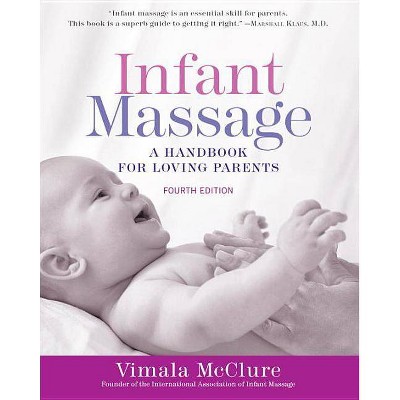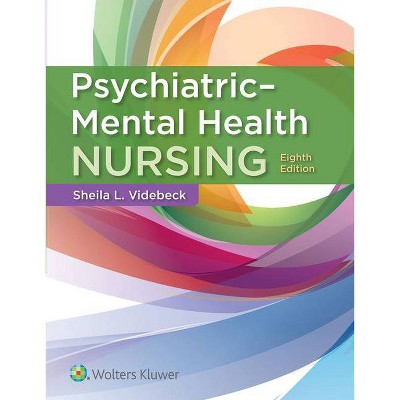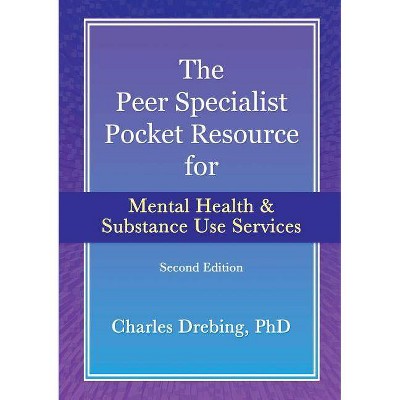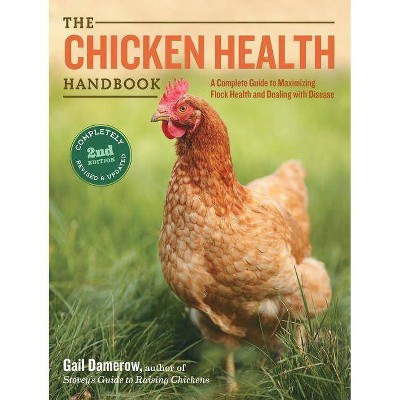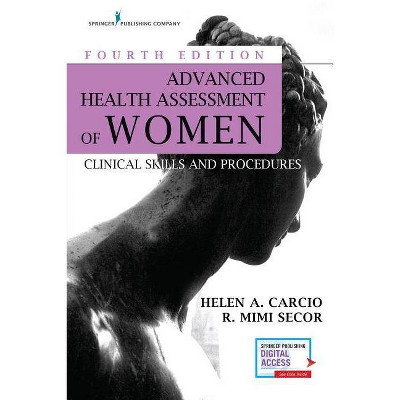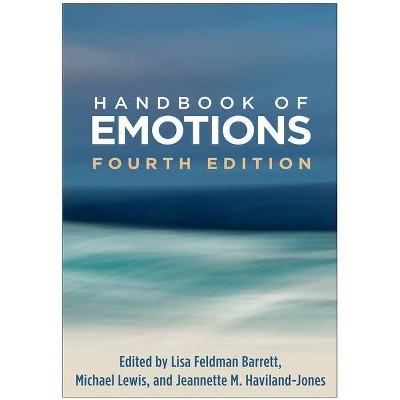Handbook of Infant Mental Health, Fourth Edition - 4th Edition by Charles H Zeanah (Paperback)
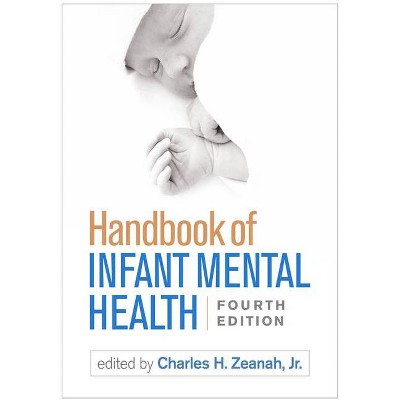
Similar Products
Products of same category from the store
AllProduct info
<p/><br></br><p><b> Book Synopsis </b></p></br></br>The definitive reference in the field--now significantly revised with 75% new material--this volume examines typical and atypical development from birth to the preschool years and identifies what works in helping children and families at risk. Foremost experts explore neurobiological, family, and sociocultural factors in infant mental health, with a major focus on primary caregiving relationships. Risk factors for developmental problems are analyzed, and current information on disorders and disabilities of early childhood is presented. The volume showcases evidence-based approaches to assessment and intervention and describes applications in mental health, primary care, child care, and child welfare settings. <p/> New to This Edition: <br> *Chapters on genetic and epigenetic processes, executive functions, historical trauma, and neglect. <br> *Chapters on additional clinical problems: hyperactivity and inattention, sensory overresponsivity, and relationship-specific disorder. <br> *Chapters on additional interventions: attachment and biobehavioral catch-up, video-feedback intervention to promote positive parenting and sensitive discipline, parent-child interaction therapy, and home visiting programs. <br> *Existing chapters all rewritten or revised to reflect a decade's worth of empirical and clinical advances. <br><p/><br></br><p><b> Review Quotes </b></p></br></br><br>"A comprehensive reference that is a valuable addition for a developmentally oriented clinician who interacts with young children and families." (on the second edition)-- "Journal of Developmental and Behavioral Pediatrics" (6/1/2001 12:00:00 AM)<br><br>"If you can't find helpful information summarized here, relevant to any important or special problem pertinent to children ages 0-3, then the data do not yet exist." (on the second edition)-- "American Journal of Psychiatry" (5/1/2002 12:00:00 AM)<br><br>"Successive editions of this handbook have given us the foremost thinking in an incredibly fast-developing area. Readers of the fourth edition will be delighted by a diversity of perspectives that define an increasingly rich field. For example, new chapters on epigenetics and historical trauma deepen our understanding that the baby is an interactive traveler on a multigenerational journey. Zeanah has yet again assembled an all-star cast of authors to help us better understand and intervene at both individual and sociocultural levels. This handbook is equally indispensable to researchers, clinicians, policymakers, educators, and graduate students. With the correct classroom supports, the fourth edition is ideal for use in graduate programs and postdoctoral seminars. Its utility as a classroom text spans psychology, developmental science, education and special education, psychiatry, social work, nursing, early intervention, pediatrics, public health, and many other disciplines."--Walter S. Gilliam, PhD, Child Study Center, Yale School of Medicine <p/> "Zeanah has once again brought together the leading experts in the field to provide the most comprehensive, up-to-date presentation of the science and practice of infant mental health. Chapters offer a broad view as well as specific information about early childhood development in context, risk and protective factors, assessment, psychopathology, interventions, and applications in different settings and contexts. The volume presents detailed roadmaps for clinical care, training, and advocacy. For every child psychiatry fellow and faculty member in our department, this is the core, foundational book of early childhood mental health knowledge."--Helen Link Egger, MD, Chair, Department of Child and Adolescent Psychiatry, and Director, Child Study Center, New York University Langone Medical Center <p/> "As in prior editions, the fourth edition of the <i>Handbook</i> distills a massive body of research on neurobiological processes in the developing child and renders it digestible to readers who are less familiar with the topic. To our great fortune, coverage of neurobiology has been expanded with a cutting-edge chapter on epigenetics. Other new chapters keep pace with the rapidly evolving field of evidence-based infant mental health interventions by presenting approaches arising from varying theoretical and philosophical bases."--Brenda Jones Harden, PhD, Department of Human Development and Quantitative Methodology, University of Maryland, College Park <p/> "From its pioneering first edition, this handbook established itself as the authoritative resource for the infant mental health field. Now in its fourth edition, this volume builds on the foundations of the previous editions, yet brings the reader up to date with thorough reviews of key topics. Newcomers to the field, students (both beginning and advanced), and experienced clinicians and researchers will all find the <i>Handbook</i> invaluable. It covers the main issues 'from cell to society, ' is accurate and scientifically rigorous, and offers balanced descriptions of complex issues."--David Oppenheim, PhD, Department of Psychology and Center for the Study of Child Development, University of Haifa, Israel <p/> "The fourth edition very much keeps abreast of developments in the field of infant mental health. I have read the new chapters with much enjoyment and sense of fruitfulness. The <i>Handbook</i> is pertinent, up to date, and a great resource for those of us working directly with infants and parents, as well as those seeking to develop the overall coordination and delivery of mental health services. All of the contributors are at the forefront of their respective areas of research and clinical activity. The <i>Handbook</i> is the overall textbook for our multidisciplinary training program in infant and parent mental health at the University of Melbourne. The residents and fellows in the infant mental health program at the Royal Children's Hospital also refer to the book when providing inpatient and outpatient care."--Campbell Paul, MBBS, FRANZCP, Honorary Principal Fellow, University of Melbourne, Australia; Consultant Infant Psychiatrist, Royal Children's Hospital Melbourne<br><p/><br></br><p><b> About the Author </b></p></br></br>Charles H. Zeanah, Jr., MD, is the Mary Peters Sellars-Polchow Chair in Psychiatry, Professor of Psychiatry and Pediatrics, and Vice Chair for Child and Adolescent Psychiatry at Tulane University School of Medicine. He serves as Executive Director of the Tulane Institute of Infant and Early Childhood Mental Health. He also directs the Tulane Infant Team, a community-based intervention program for abused and neglected infants and toddlers in the New Orleans area. Dr. Zeanah has a longstanding interest in infant mental health, with clinical and research foci including the effects of adverse early experiences on the development of young children, attachment and its development in high-risk environments, psychopathology in early childhood, and infant-parent relationships. He is the recipient of honors including the Ruane Prize for Outstanding Achievement in Child and Adolescent Psychiatric Research from the Brain and Behavior Research Foundation, the Norbert and Charlotte Rieger Award for Outstanding Scientific Achievement from the American Academy of Child and Adolescent Psychiatry (AACAP), the Agnes Purcell McGavin Award for Prevention from the American Psychiatric Association (APA), and the Blanche F. Ittelson Award for Research in Child Psychiatry from the APA. Dr. Zeanah is a Distinguished Life Fellow of AACAP and the APA and a Board Member of Zero to Three. He is Visiting Professor at the University of Bucharest and the University of Glasgow. <p/>
Price History
Cheapest price in the interval: 65 on October 28, 2021
Most expensive price in the interval: 65 on November 6, 2021
Price Archive shows prices from various stores, lets you see history and find the cheapest. There is no actual sale on the website. For all support, inquiry and suggestion messagescommunication@pricearchive.us
